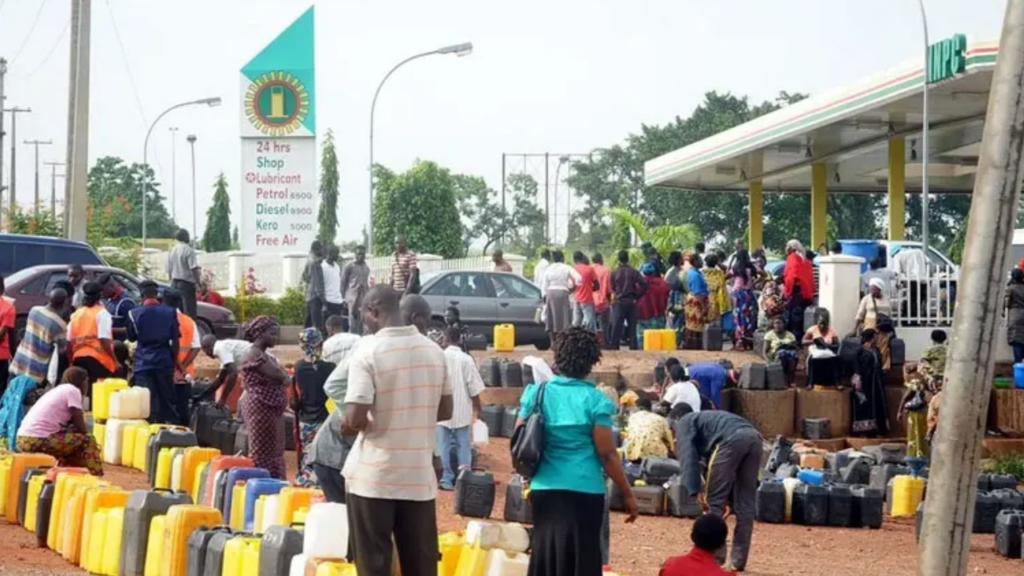Solid Minerals
India’s Sugar Output Stalls as Mills Protest Cost of Cane

NEW DELHI – India, the world’s second-largest producer of sugar, could see its sugar output drop by as much as 10% in the new marketing year as mills argue with the government over how much they have to pay for sugar cane.
While it is peak sugar cane harvesting season, most Indian sugar mills have been refusing to start production until they are allowed to pay less for cane.
In India cane prices are set by the government while sugar prices are set by the market. With government-controlled sugar prices rising every year and market prices for sugar basically flat, refining companies say they cannot make money anymore.
“How can we begin [refining]?” said Abinash Verma, director general of Indian Sugar Mills Association, saying the only solution to the impasse is to link the cane price to sugar.
Most Indian mills begin crushing in November, but so far fewer than half of them have started operations to squeeze the sugary liquid out of cane, said the Indian Sugar Mills Association.
 If the sugar mills, the government and the cane farmers do not come to an agreement soon, sugar production in India could fall by as much as 10% of government estimates for the year that began in October, said Ajay Srinivasan, a director in credit rating agency Crisil.
If the sugar mills, the government and the cane farmers do not come to an agreement soon, sugar production in India could fall by as much as 10% of government estimates for the year that began in October, said Ajay Srinivasan, a director in credit rating agency Crisil.
“This situation is definitely grave now,” he said. “The longer it will take to break the impasse, the more it will impact the sugar output.”
In the year ended Sept. 31, India produced 25.1 million metric tons of sugar, making it the second-largest producer in the world after Brazil.
The International Sugar Organization predicts global sugar production will exceed demand by 4.7 million metric tons in the year that began in October. The extra sugar is putting pressure on prices, which have dropped 5% this month. Lower sugar exports from India or even possible new Indian demand for sugar imports, could help reverse the decline.
In India, prices for refined sugar are now set largely by market forces and have edged up only around 3% over the past three years. Over the same period cane prices, set by state governments, have increased by 14%.
Mills say the current price regime has forced them into losses and they want the price of cane to be linked to sugar. The federal government has referred the matter to a panel that is working on a package of financial incentives to help the mills. Food Minister K.V Thomas said he expects a ruling in a few days.
The state government of Uttar Pradesh, the largest sugar cane producing state, is using the carrot and the stick approach to jump-start production. It has offered tax breaks to sugar refineries and at the same time threatened legal action against those who refuse to begin operations.
Farmers may be forced to divert their cane to molasses factories if the price deadlock continues as they have to clear their fields for sowing the winter season crop. Farmers without easy access to molasses factories may just have to burn their unsold sugar cane crop in order to plant wheat and other winter season crops, analysts said.
Sugar cane farmers oppose a shift to market pricing for their products, saying they cannot shoulder the risk as sugar prices fail to keep pace with the rising costs of imported fertilizer and other inputs.
Even without the battle over prices, production of sugar in the crop year that started Oct. 1 is expected to fall 3% to 24.4 million metric tons, according to government estimates.
If the mills do not start working soon, the decline could be much sharper. It would reduce the amount of Indian sugar available on the global market, said some analysts.
“If crushing does not begin in time, then exports would also suffer,” said Mr. Srinivasan
– WALL STREET JOURNAL
Business
Nigeria set to boost Naira value and foreign reserve with local gold production, as Tinubu receives gold bar
IN a significant move to strengthen Nigeria’s economy, President Bola Tinubu received a symbolic gold bar on Sunday from the Minister of Solid Minerals Development, Dele Alake.
This gesture marks the commencement of the National Gold Purchase Program (NGPP), aimed at boosting the naira’s value and enhancing the country’s foreign reserves.
Minister Alake expressed gratitude to President Tinubu for his support of reforms in the solid minerals sector.
He highlighted that the NGPP, which involves sourcing gold from artisanal and small-scale miners and refining it to meet the London Bullion Market Association’s Good Delivery Standard, will substantially contribute to Nigeria’s economic stability.
Alake stated “This initiative will significantly increase our foreign reserves and strengthen the naira. The refined gold will be supplied to the Central Bank of Nigeria, marking a crucial step in our economic strategy.”
The presentation also underscored the first commercial transaction under the NGPP, establishing a centralized gold purchasing system that integrates small-scale miners, cooperatives, and production units across the nation.
This program is expected to provide a structured market for gold, fostering economic growth and stability.
He said, “The successful completion of the first commercial transaction clearly demonstrates the National Gold Purchase Program’s effectiveness. It has increased the nation’s foreign reserves assets and shown that using the Nigerian Naira to purchase a liquid asset traded in United States Dollars, such as gold, is a viable strategy. This transaction has also underscored the potential of the National Gold Purchase Program to enhance fiscal and monetary stability.”
Alake added that the initial commercial transaction under the program resulted in a +US$5 million boost in Nigeria’s foreign reserve assets.
The transaction involved refining over 70 kilograms of gold to meet the London Bullion Market quality standard and aggregating locally mined gold, thereby infusing approximately NGN6 billion into the rural economy.
President Tinubu expressed appreciation for the Ministry’s accomplishment in advancing the government’s goal of economic diversification by acknowledging and displaying the symbolic gold bar
Solid Minerals
FG Fingers Foreigners Sponsoring Banditry For Illegal Mining

The Nigerian Government has threatened to come down heavily on foreigners sponsoring bandictory as a way of sustaining illegal mining activities in parts of the country.
The warning was handed down in Abuja by Minister, Solid Minerals Development, Dr Oladele Alake, while receiving a delegation of the Nigeria-China Chamber of Mines led by its National President, Dr. Olugbenga Ajala.
Details of these were contained in a statement released by Head, Press & PR, Ministry of Solid Minerals Development, Alaba Balogun over the weekend.
The statement cited, Dr Alake, thus, “The government will come down firmly on these unscrupulous foreign operators sponsoring banditry to perpetrate illegal mining: let me use this medium to appeal through you to tell those sponsors to desist or face the full wrath of the law.”
According to Dr Alake, the Ministry is committed to establishing a multi-agency task force that will end the activities of illegal miners and their collaborators.
The Minster made it clear that the FG had given illegal miners a 30-day-ultimatum to legitimise their businesses, quit Nigeria or incur the wrath of the law.
According to him, this will help “to streamline and structure the Small-Scale Artisanal Miners for maximum yield to the Federal Government.”
The delegation paid a courtesy call on the Minsiter at the Ministry’s headquarters in Abuja.
Energy
Fuel Scarcity: Govt Yet to Increase Pump Prices – NMDPRA

By Edozie Obasi-Eze
Amidst heightening uncertainties in the domestic petroleum products market characterised by scarcity and irregular pricing, the Nigerian Midstream and Downstream Petroleum Regulatory Authority (NMDPRA) has declared that there’s no intention to review pump prices upwards.
This was contained in an advisory issued by General Manager, Corporate Communications, NMDPRA, Kimchi Apollo.
He stated that the Nigerian National Petroleum Corporation Limited (NNPCL) had imported PMS with current stock levels sufficient for 34 days.
In an attempt to address panic buying and speculations which have seen price of Premium Motor Spirit (PMS) oscillate between N180-N250 in the Lagos area, Apollo assured that there was enough quantity of the product in the country already.
He said, “Consequently, marketers and the general public are advised to avoid panic buying, diversion of products and hoarding.
“In keeping with the Authority’s responsibilities as outlined in the Petroleum Industry Act (PIA), the Authority assures the public that it would continue to monitor the supply and distribution of petroleum products nationwide, especially during this holiday season.”











